JIM DINE: Master of the Print
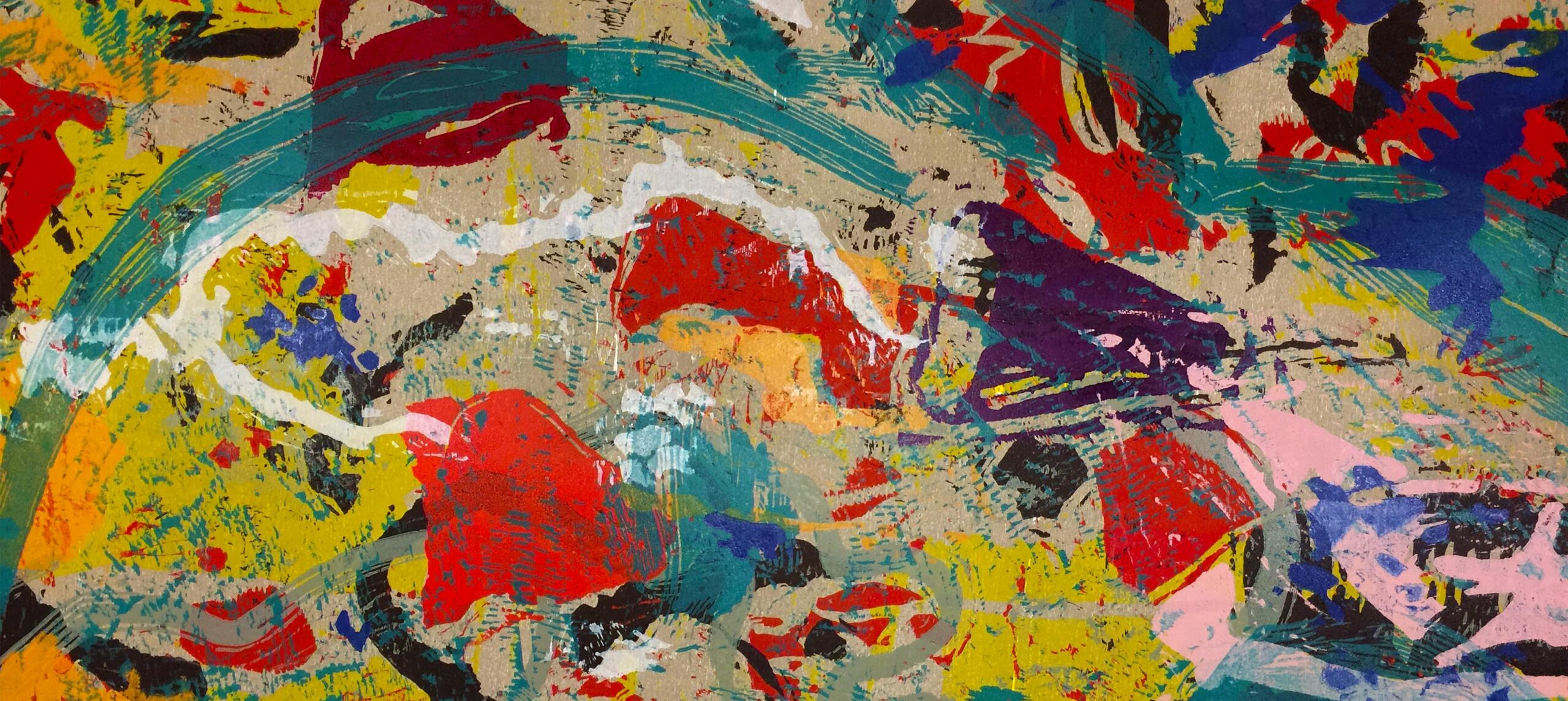
Detail from Painters and Poets in the French
Jim Dine editions are known for their strong, graphic style, bright colors, and straightforward imagery. By singling out simple shapes and objects and depicting them over and over, Dine suggests that these are important subjects for artistic study. The catalogue of Jim Dine editions includes many representations of iconic imagery that have special meaning in the artist’s life. Dine frequently employs certain powerful symbols and objects in endeavoring to create a deeper interpretation of the significance he attaches to them. He views this work as an examination of the impact of these archetypal symbols, rather than merely a celebration of them.
One autobiographical reference in Dine’s work is the focus on ordinary tools which appear in many of his works. During his childhood, Dine frequently visited his grandfather’s hardware store where he would amuse himself for hours playing with the tools and implements that were part of the store’s inventory. From these experiences came his fascination with tools as an extension of the artist’s hand and as a worthy subject of exploration.
The bathrobe is also representative of personal identity in Dine’s work. Dine explains that he was searching for a way to create self-portraits when he happened upon an ad for bathrobes in a magazine. He instantly recognized his own shape in the “uninhabited” bathrobe and it became a metaphorical representation of the artist himself and one of the most popular icons in Dine’s work. Dine also has a number of works which offer another “take” on the self-portrait: Dine as poet. These works focus on the outline of Dine’s head and neck; his prominent ears are also easily recognized.
Another major recurring element in Dine’s work is the heart. Through the heart motif, Dine explores many themes as well as countless combinations of media, color, form and texture. Dine once said of his heart iconography: “It’s a landscape for everything. It’s like Indian classical music — based on something very simple but building to a complicated structure. Within that you can do anything in the world. And that’s how I feel about my hearts.” (Milwaukee Journal Sentinel).
Finally, for much of Dine’s career, hints of abstraction could be found in the backgrounds of his works. In the 21st century, he began focusing on the strength and intensity of background abstract elements, causing the representational imagery to pop out on the surface. In these works, we witness the results of Dine’s experimentation with pure abstraction. He invites us into a complex, mysterious, and colorful world of beauty.
Jim Dine editions are produced using a multitude of techniques. Inspired by his childhood workman’s background and the tools of his youth, Dine has experimented with many different forms of printmaking, including woodcuts, lithography, aquatint, spitbite, and other forms of etching as well as monotypes. The artist also utilizes many different types of papers with a variety of textures and colors; he is passionate not only about the process, but also about the finished result. Many of Dine’s prints are extensively hand-colored by the artist; the abstract images displayed below are generally produced in small editions–often less than fifteen impressions. Dine says he also enjoys the social nature of print-making because a team of artisans is required to complete the work whereas painting is a solitary pursuit. Jim Dine made his first print at the age of seventeen and has continued to produce amazing editioned works throughout his artistic life.
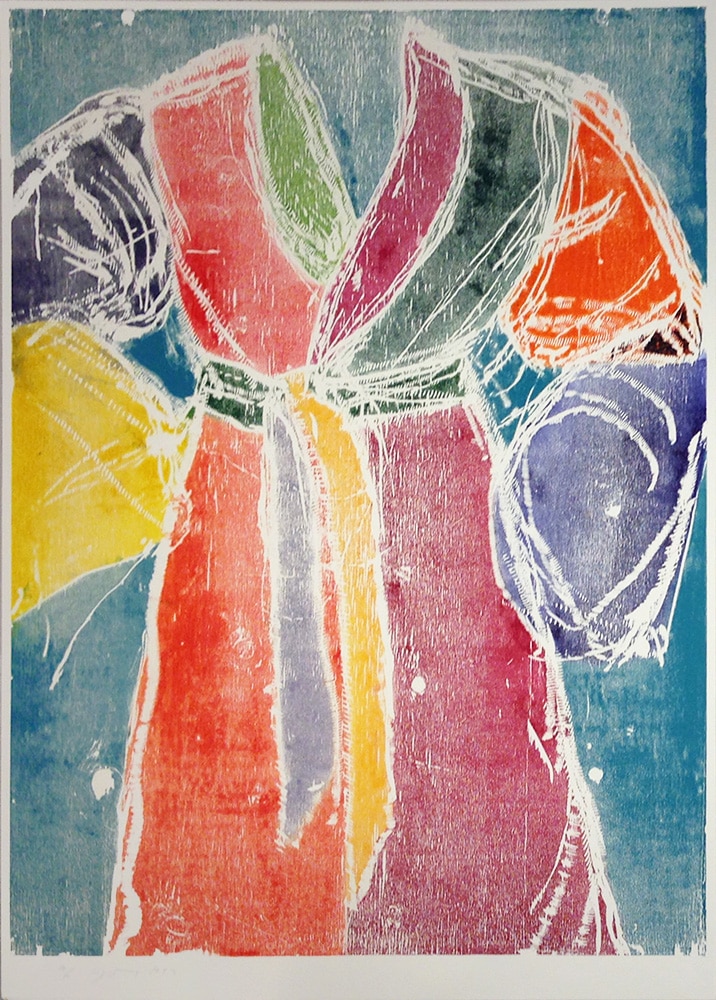
Ghost Robe, 1992
Woodcut on Arches Cover White; cut edges
Sheet: 64-1/8″ x 41-3/4″ (162.9 x 106 cm)
Image: 60-3/4″ x 40-3/4″ (154.3 x 103.5 cm)
Edition of 12 (+ 5 AP)
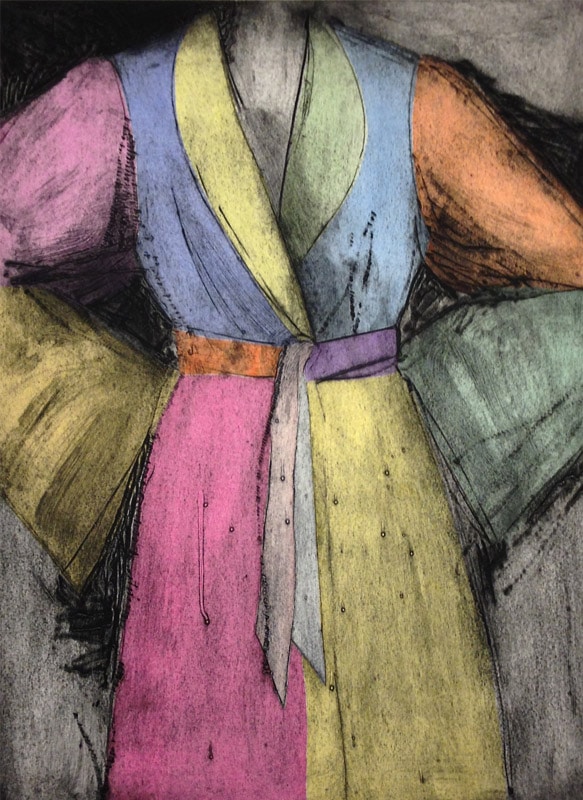
Pale Self, 1995
Cardboard relief and cardboard intaglio on Arches Cover White; cut and deckle edges
Sheet: 57-5/8″ x 41-7/8″ (146.4 x 106.4 cm)
Image: 53-1/4″ x 39″ (135.3 x 99.1 cm)
Edition of 40 (+8 AP)
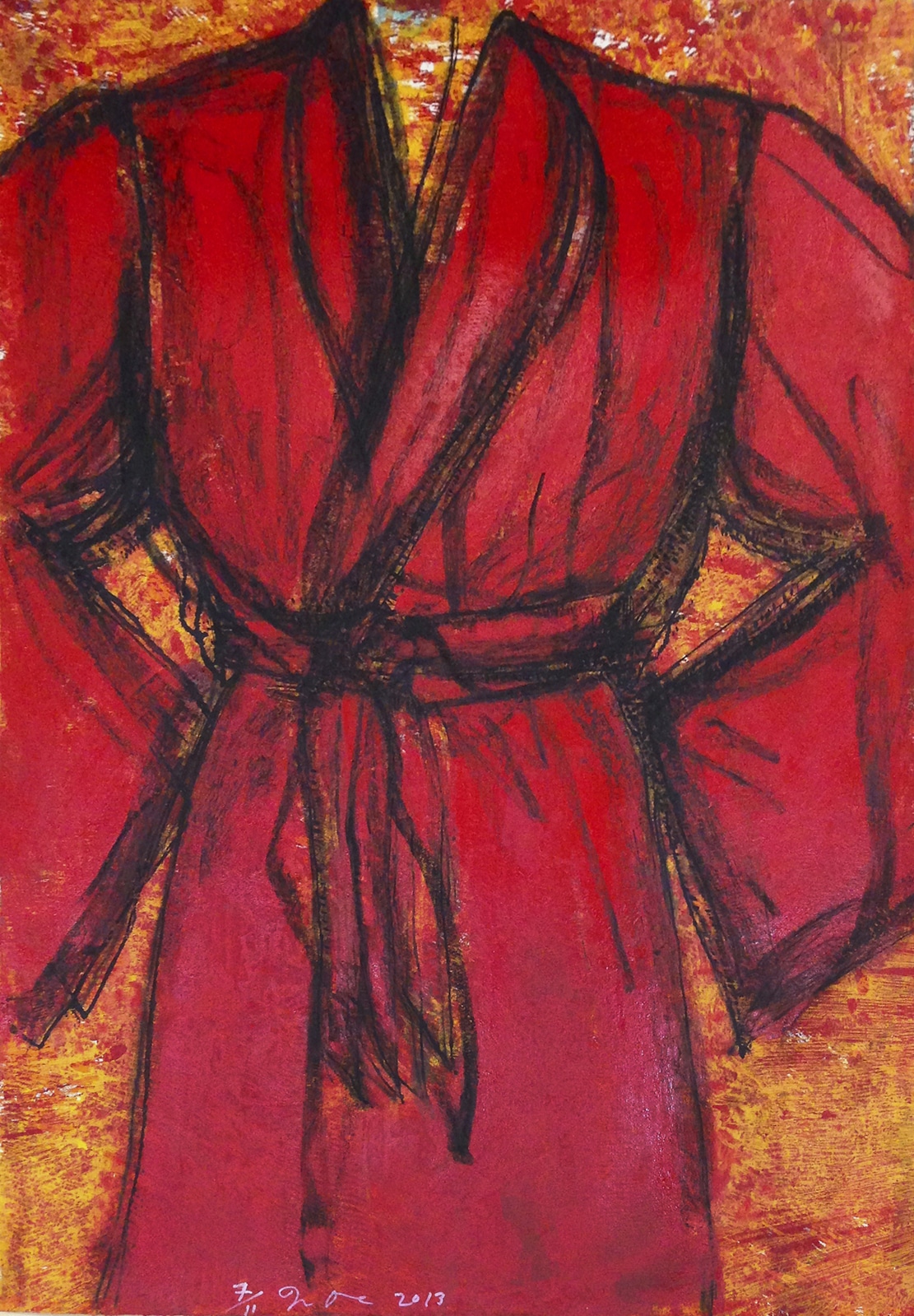
It’s a Drawing, It’s a Print, 2013
Hand coloring and drawing on top of woodcut, etching, and power-tool drypoint on Arches 400 gsm paper
Sheet and image: 54″ x 35-3/4″ (137.2 x 93.3 cm)
Edition of 11 (+ 1 AP)
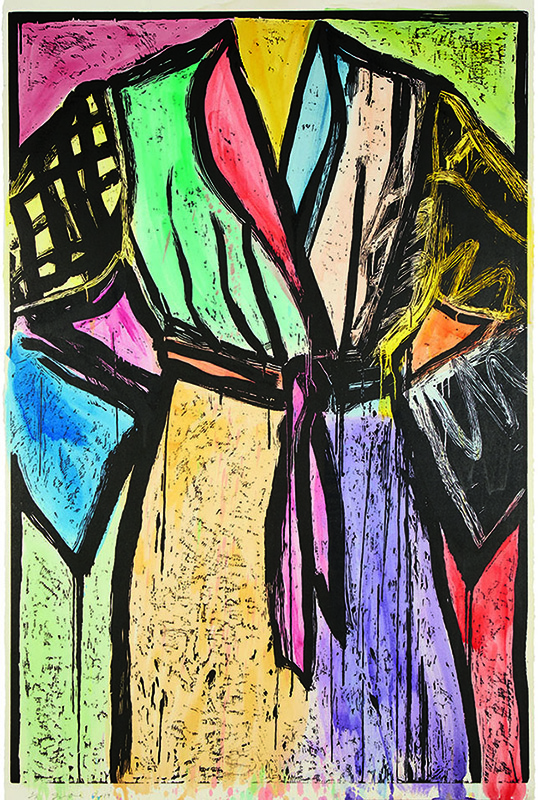
Sweetheart, 2019
Woodcut with hand coloring on Hahnemühle 350 gsm paper
Sheet: 74-1/4″ x 49-1/4″(188.5 x 125 cm)
Image: 71-5/8″ x 48″ (182 x 122 cm)
Edition of 7
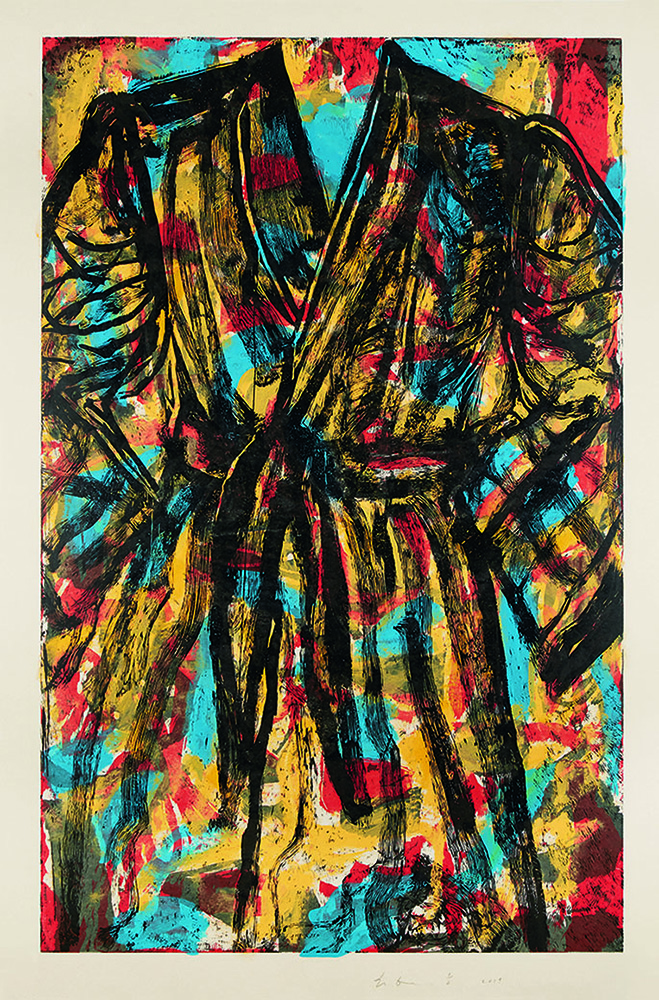
Madness and Blue, 2019
Woodcut with hand coloring on Korean paper
Sheet: 78-3/4: x 51-1/2″ (200.1 x 131)
Image: 72″ x 45-5/8″ (183 x 116 cm)
Edition of 6 (+ 1 AP)
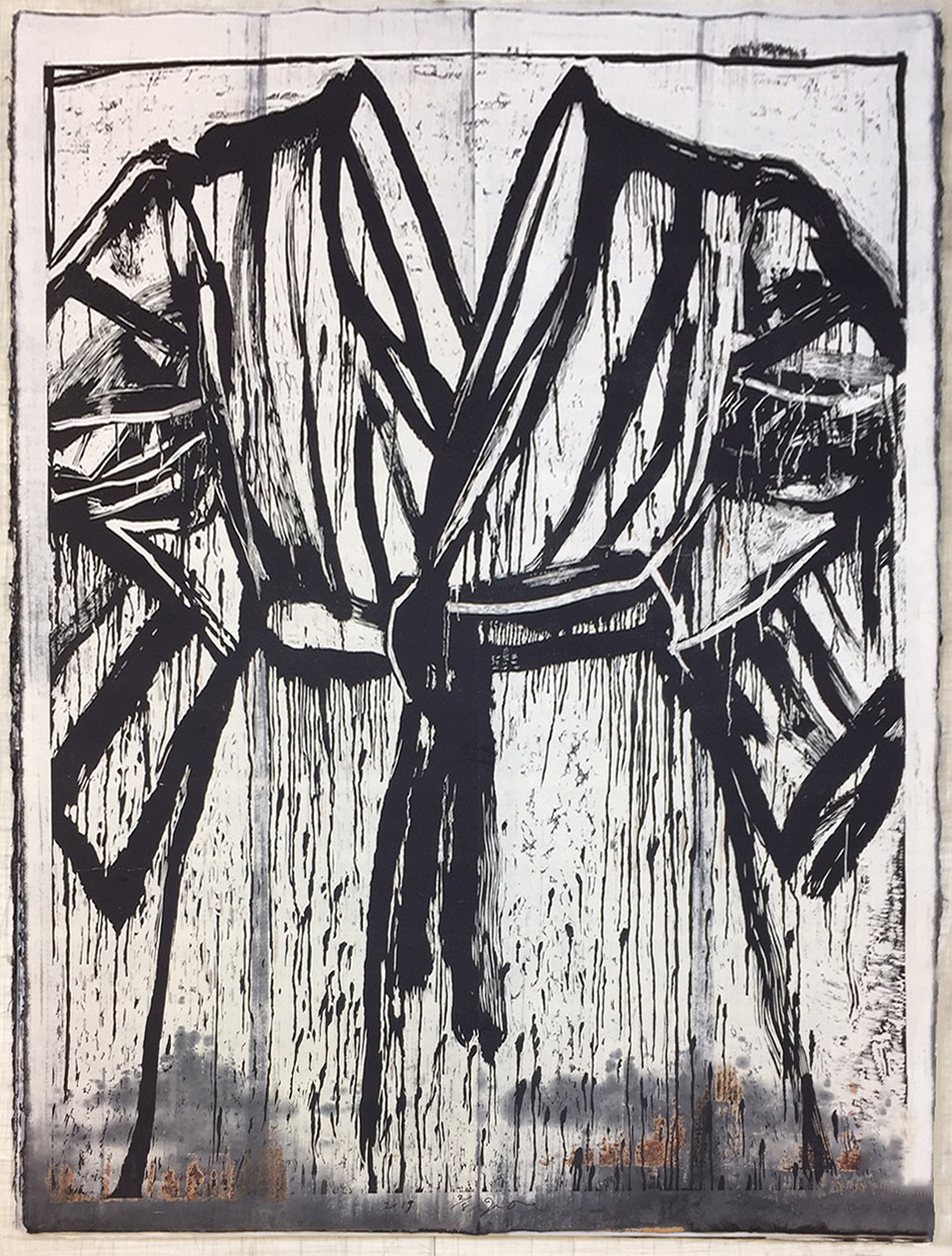
Visiting Koichi at Honmura An, 2019
From a series of 8 woodcut monoprints, each on two sheets of dyed Japanese paper hinged on the reverse
Sheet: 71-3/8″ x 51-5/8″ (181.1 x 131.0 cm)
Image: 67″ x 48″ (170.0 x 122.0 cm)

The Five Hammer Etudes 2007
Etching, spit-bite aquatint, mechanical abrasion drypoint, polishing and drypoint on five sheets of Hahnemühle Copperplate Warm paper hinged on reverse
Combined sheet: 29-5/8″ x 100-3/4″ (75.2 x 255.9 cm)
Combined image: 23-1/4″ x 96-1/4″ (59.1 x 244.5)
Edition of 11 (+6 AP)
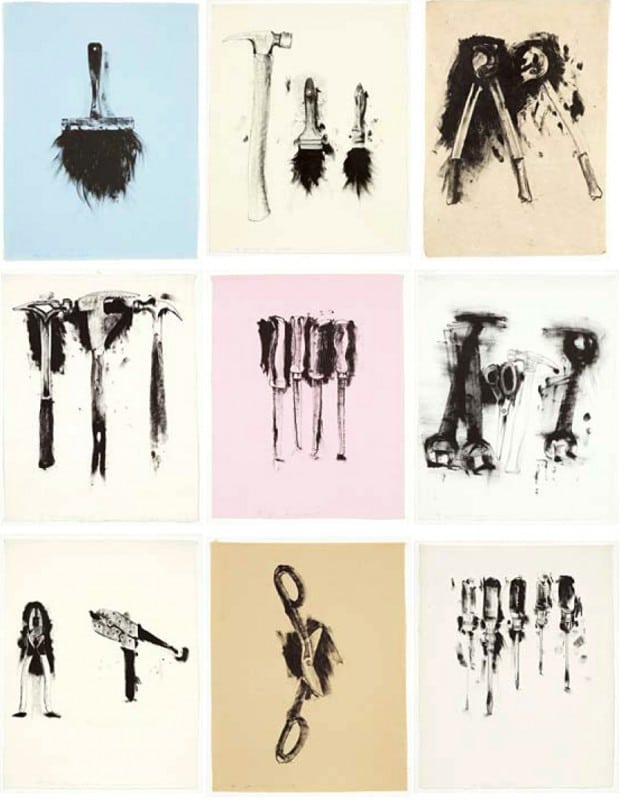
Untitled (Tools) 2009
Portfolio of 9 lithographs
Sheet sizes vary:
The smallest print in the portfolio measures 20 1/4” x 16 1/8” and the largest measures 26” x 20 3/8”
Edition of 12 (no APs)
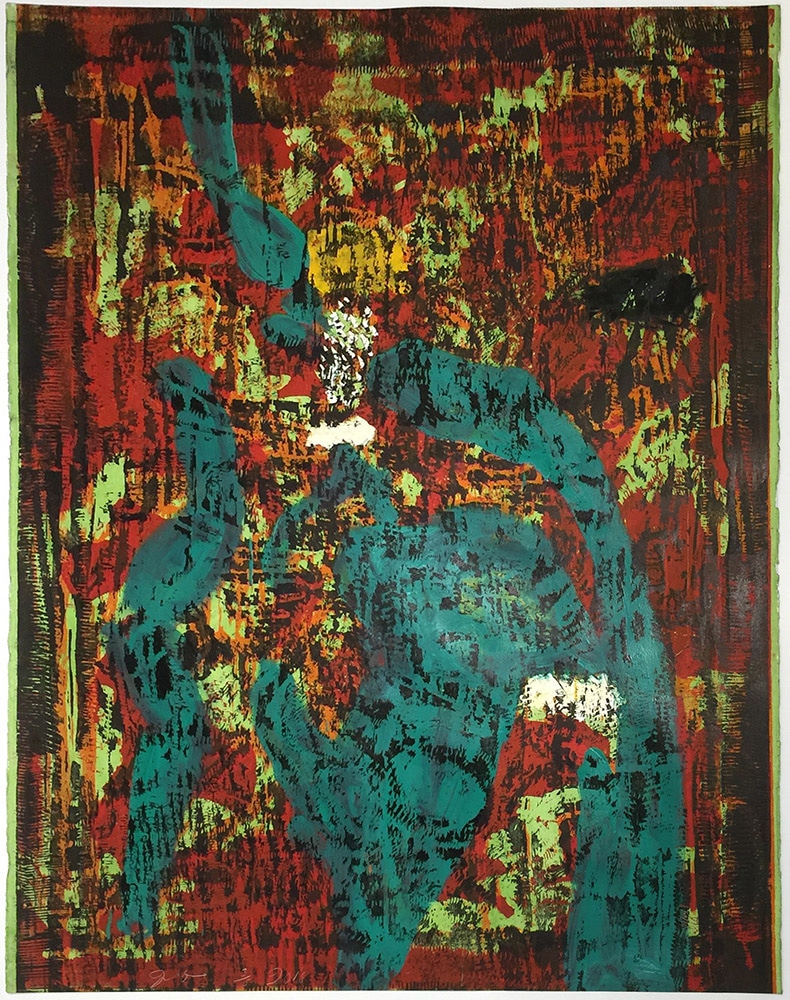
The Dear Ape, 2015
Woodcut with paper abrasion and hand coloring on Hahnemühle 350 gsm Off White paper
Sheet and image: 63″ x 49-1/4″ (160 x 125.1 cm)
Edition of 5
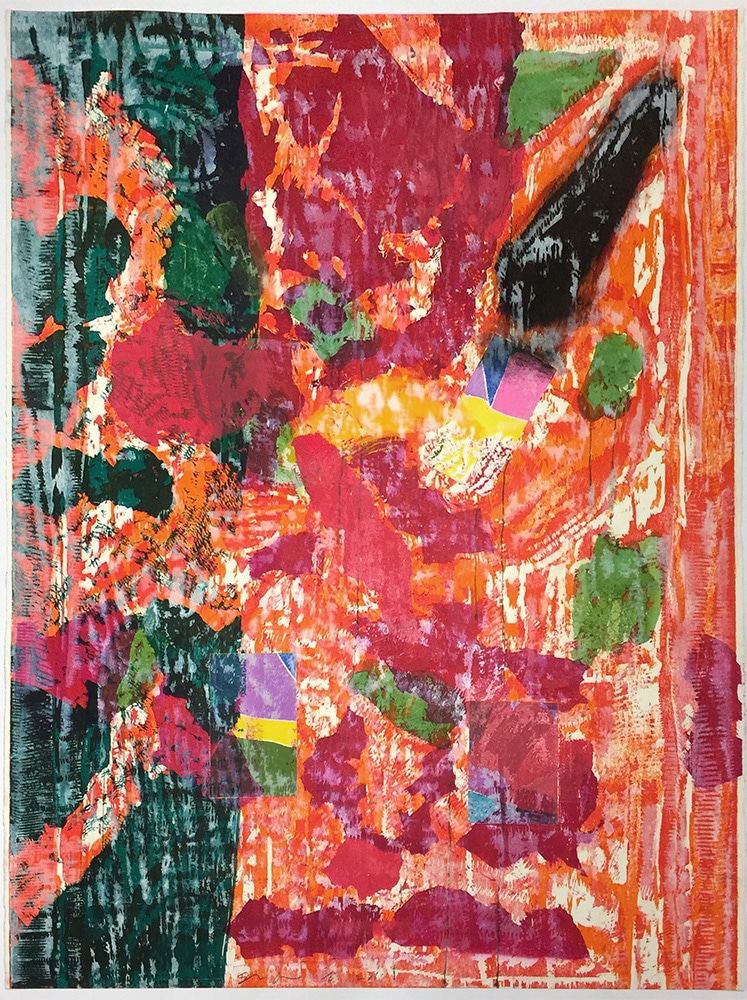
The Packing of a Sea of Glass, 2015
Woodcut with collage, paper abrasion and hand coloring on Hahnemühle 350 gsm Off White paper
Sheet and image: 63″ x 49″ (160 x 124.5 cm)
Edition of 6
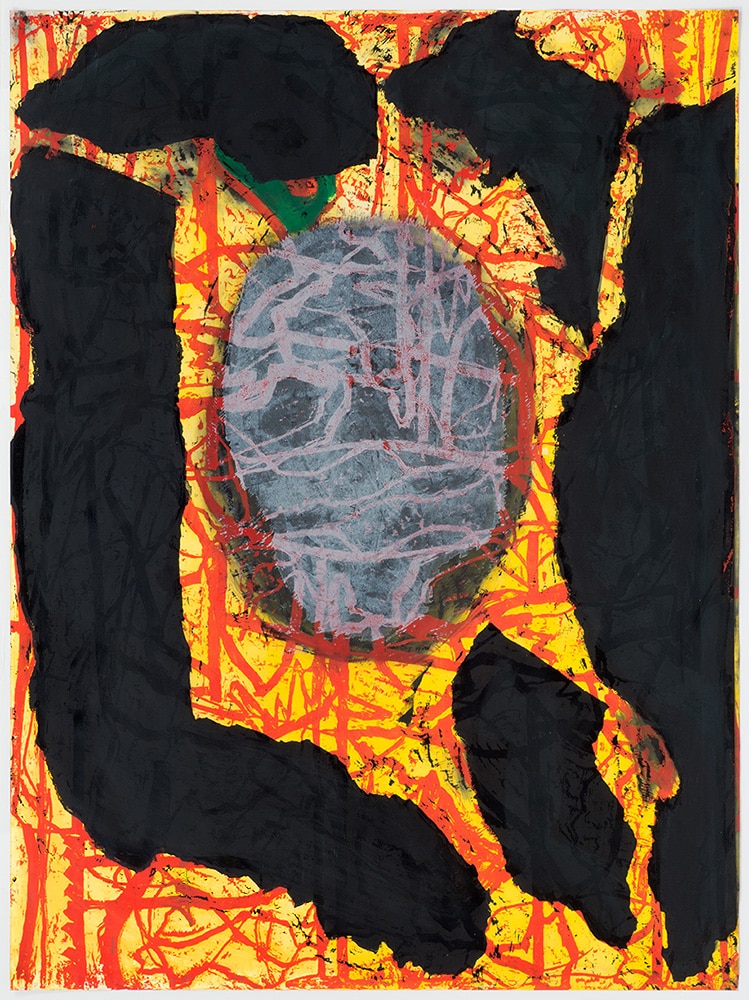
Congo Boots, 2016
Woodcut with hand coloring on Japan Daitoku paper
Sheet and image: 66-3/4″ x 49-3/4″ (169.2 x 126.2 cm)
Edition of 10
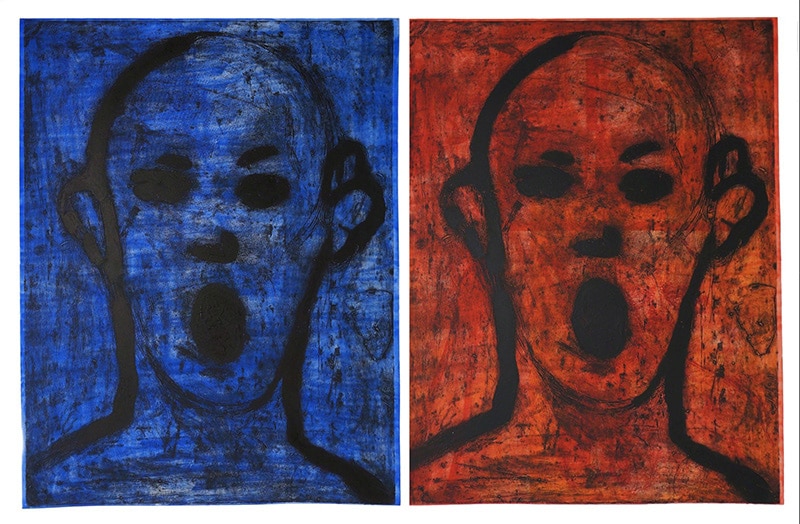
Two Poets, Singing Beautifully, 2016
Mechanical abrasion drypoint, etching, soft-ground etching, aquatint, and collagraph on two sheets of Hahnemühle Warm White Copperplate paper hinged on reverse
Paper: 57-1/2″ x 84-1/2″ (146 x 214.6 cm)
Image: 52-3/4″ x 80″ (134 x 203.2 cm)
Edition of 12 (+ 3 AP)
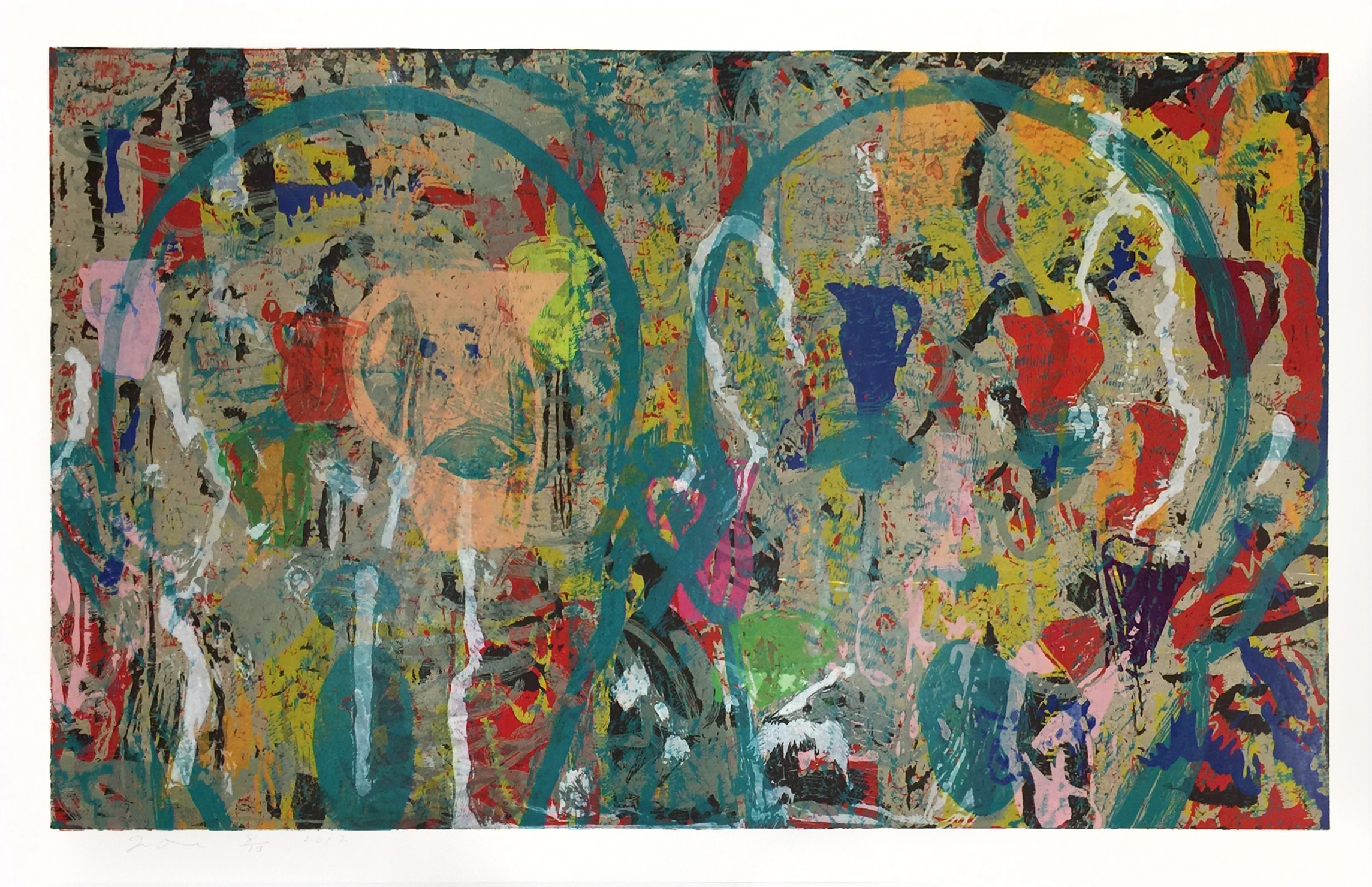
Painters and Poets in the French, 2017
Woodcut on Fabriano Artistico 640 gsm paper
Sheet: 51-1/4″ x 83-1/2″ (130.4 x 212 cm)
Image: 45-3/4″ x 79-1/4″ (116.5 x 201 cm)
Edition of 13 (+ 3 AP)
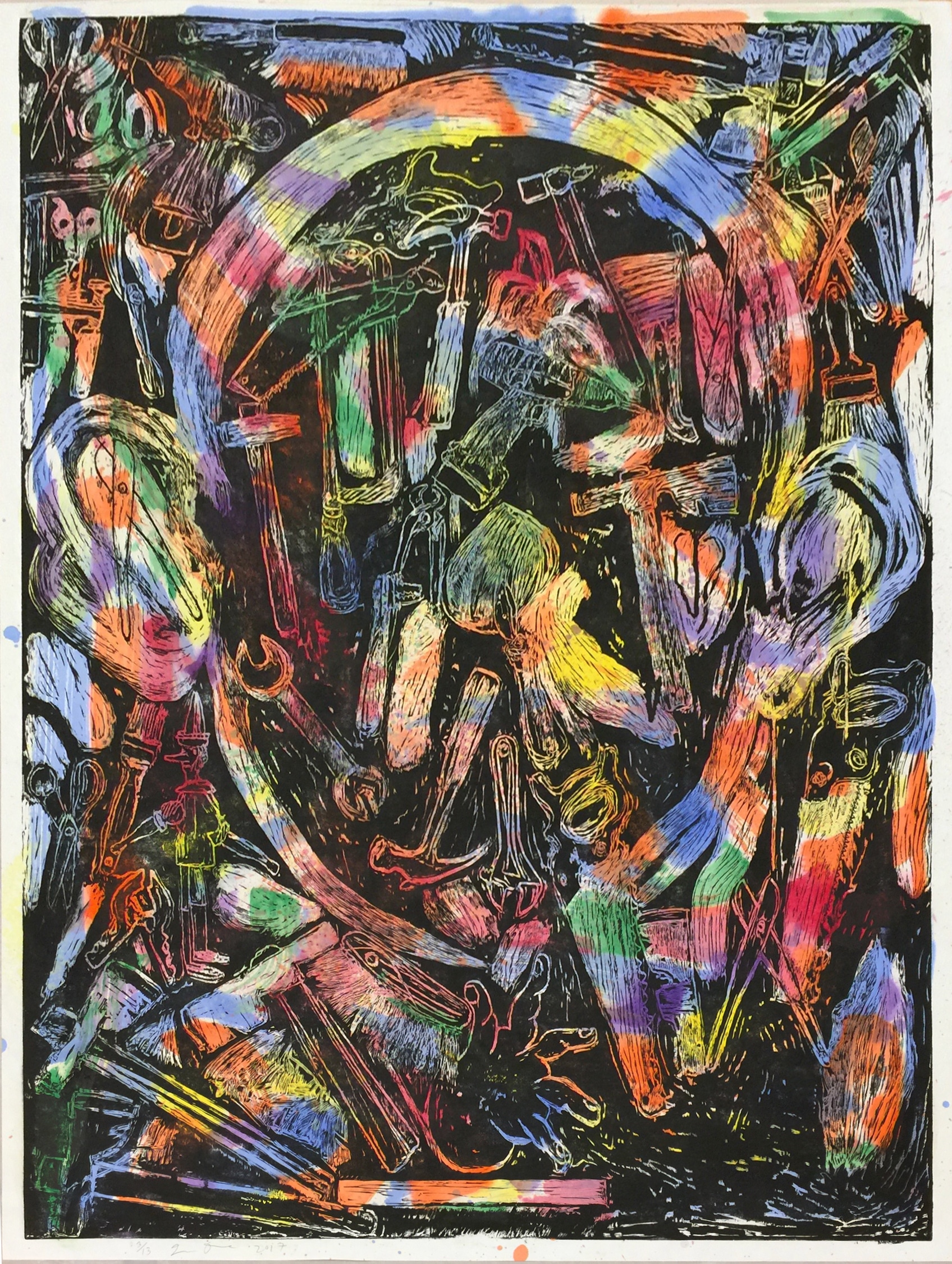
The Bees and their Merriment, 2017
Woodcut with hand coloring on Gokung Korean GKP 200 gsm paper
Sheet: 72-3/4″ x 51″ (184.6 x 129.4 cm)
Image: 70″ x 48-1/2″ (178 x 123.3 cm)
Edition of 13 (+ 1 AP)
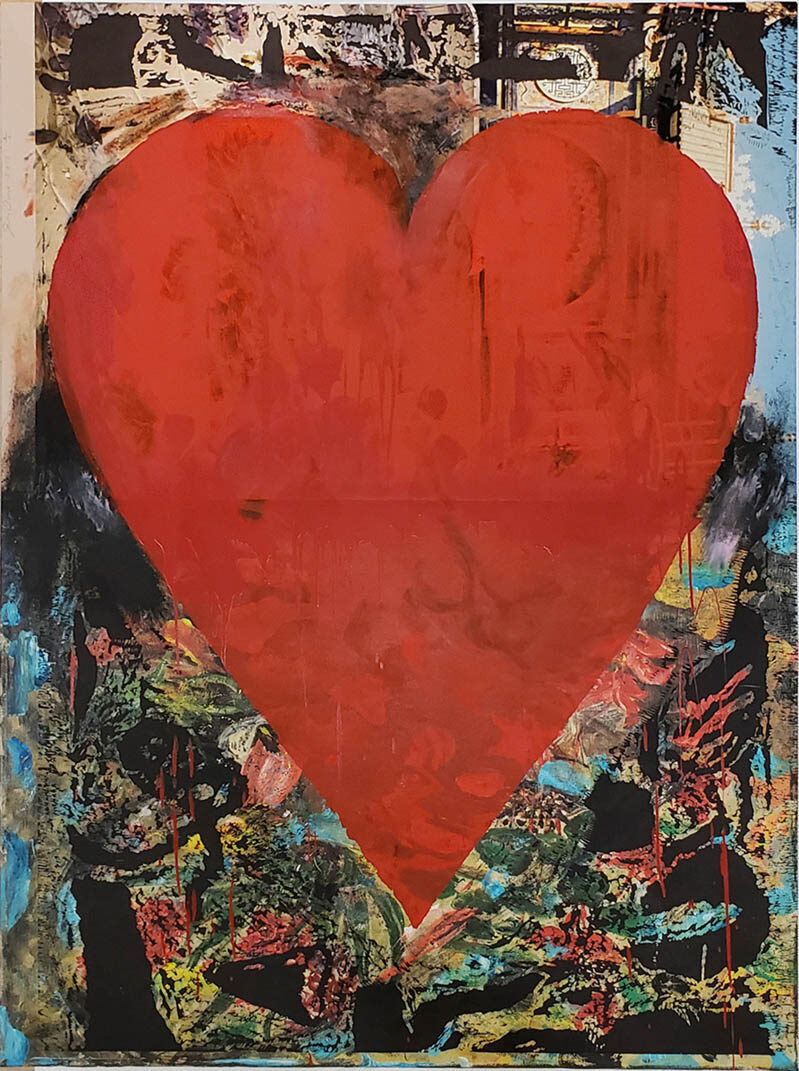
My Special Day, 2 Times, 2019
Two-color woodcut with extensive hand-painting in enamel, gouache and charcoal on two joined sheets
Sheet and image: 73-3/4: x 52-1/8″ (187.5 x 132.5 cm)
Edition of 2
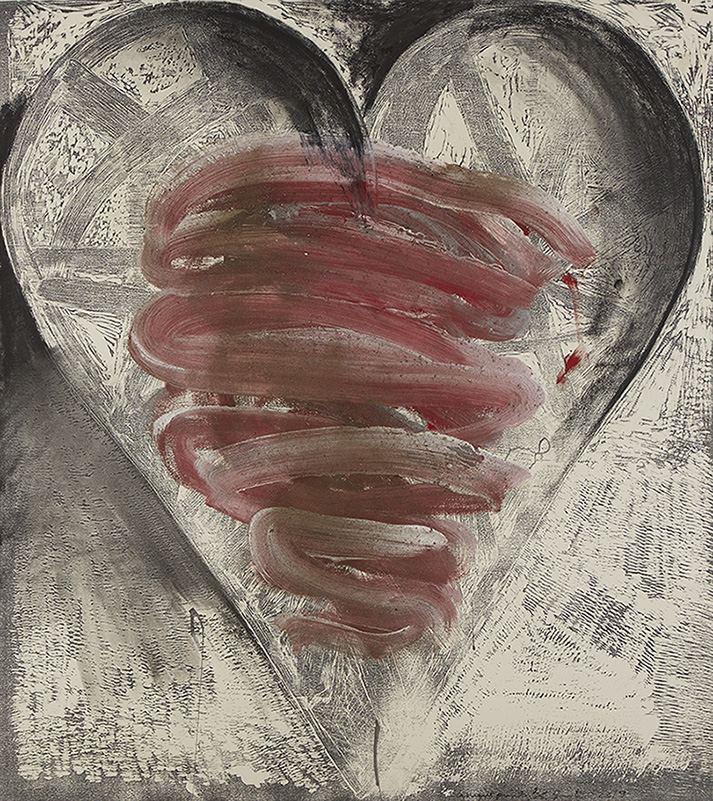
Fog and Cold in July (I), 2019
Woodcut with hand coloring and drawing on Saunders Waterford CP 300 gsm paper
Sheet and image: 47-3/4″ x 42-3/4″ (121.6 x 108.5 cm)
Edition of 2
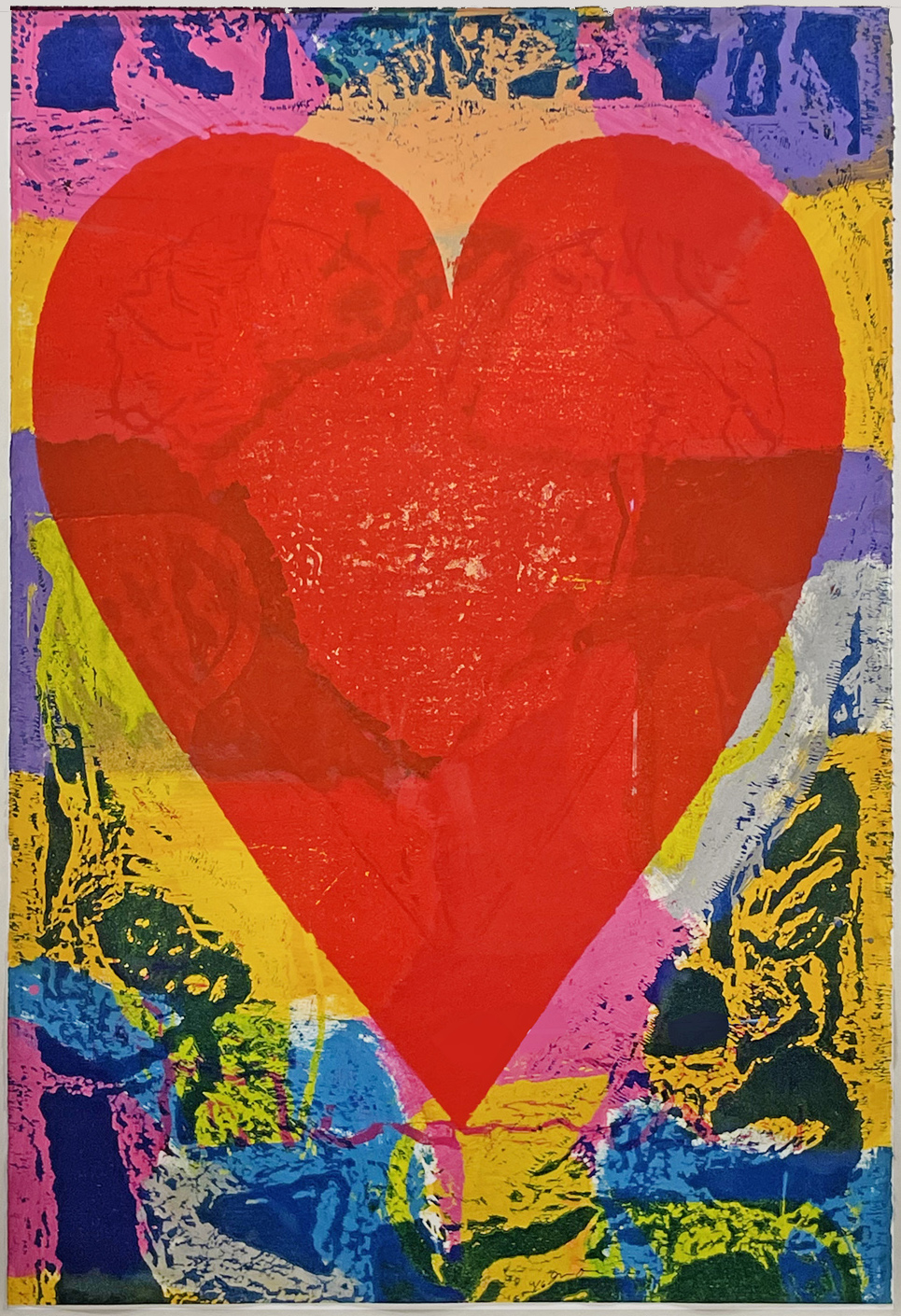
Summer with Lamp Behind Eunice, 2019
Woodcut with hand coloring on Hahnemühle 350 gsm paper
Sheet and image: 72-1/2″ x 49-1/4″ (184.2 x 125 cm)
Edition of 6
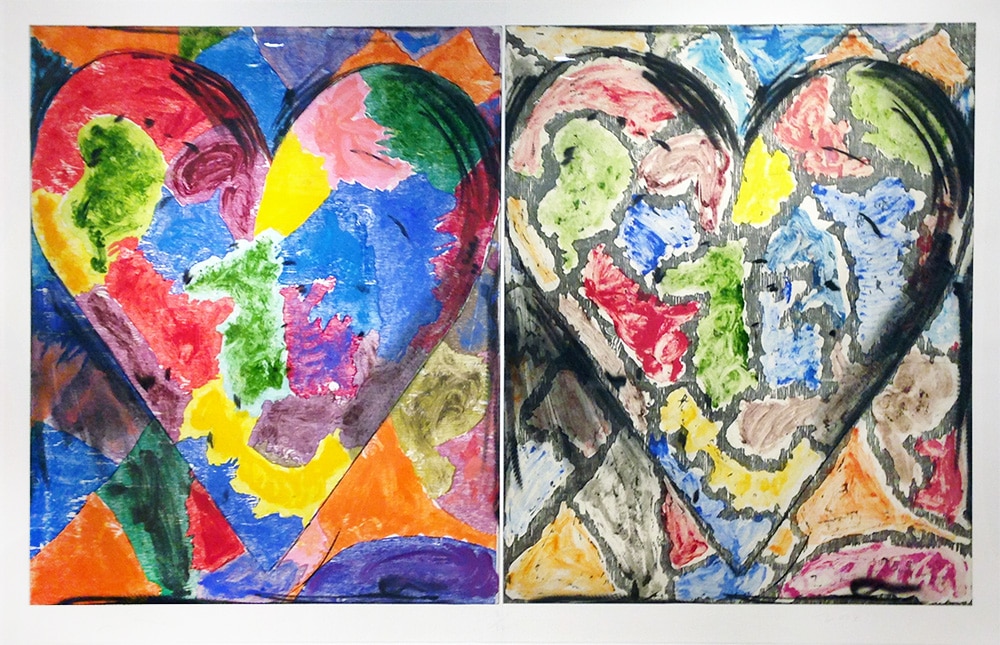
The Grand Carpet, 2008
Diptych: Woodcut, drypoint, mechanical abrasion drypoint and monotype with hand coloring and drawing on Somerset Sunray paper (left side) and Shiramine paper, mounted on Somerset Sunray paper (right side), both sides hinged together on reverse
Sheet: 51-13/16″ x 80-7/8″ (131.6 x 205.4 cm)
Image: 46-3/4″ x 76-3/4″ (118.7 x 194.9 cm)
Edition of 12 (+ 2 AP)
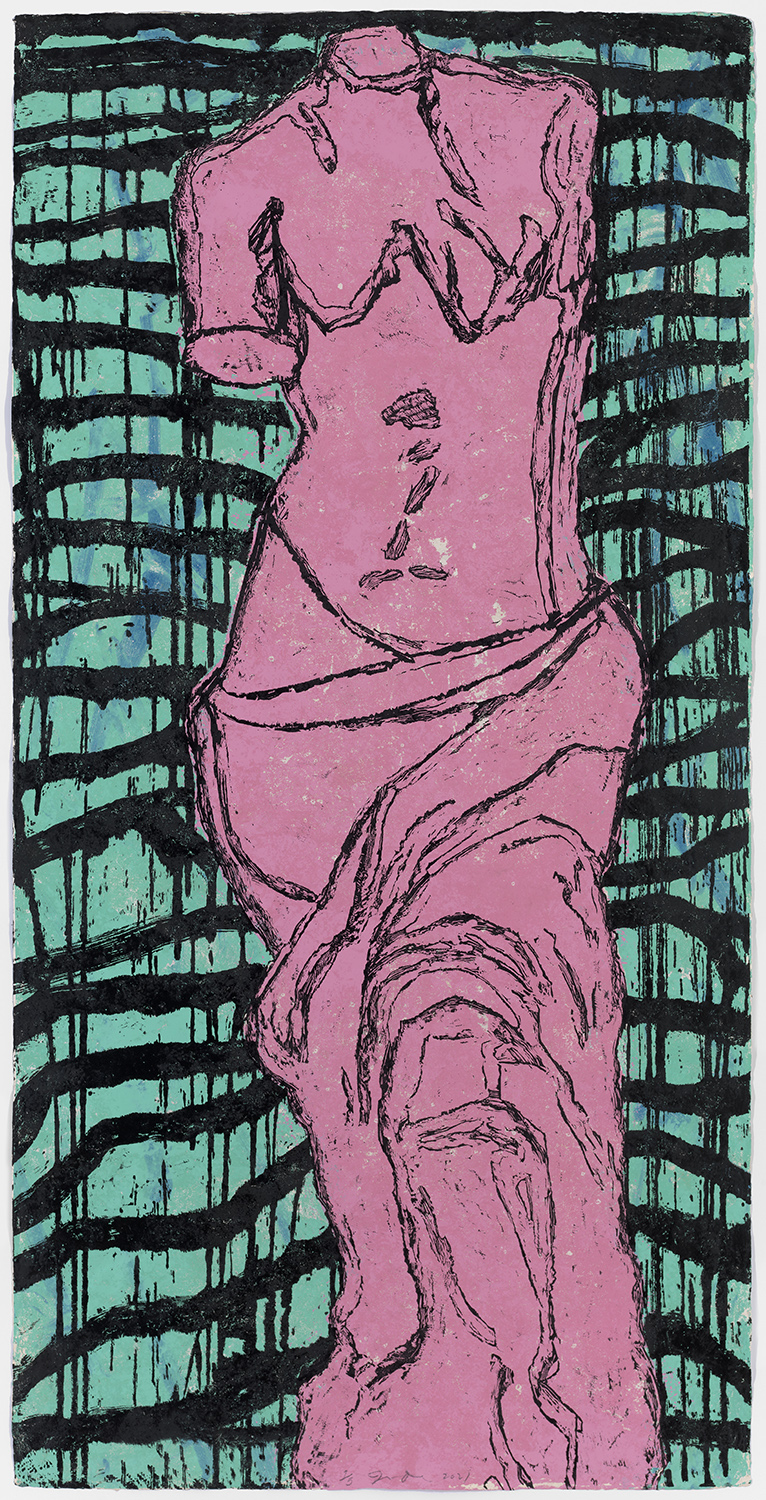
Pink Venus, Sydney Close, 2021
Woodcut on handmade Mexican paper with hand-painted background
Sheet and image: 94″ x 46-7/8″ (239 x 119 cm)
Edition of 5 (+ 1 AP)
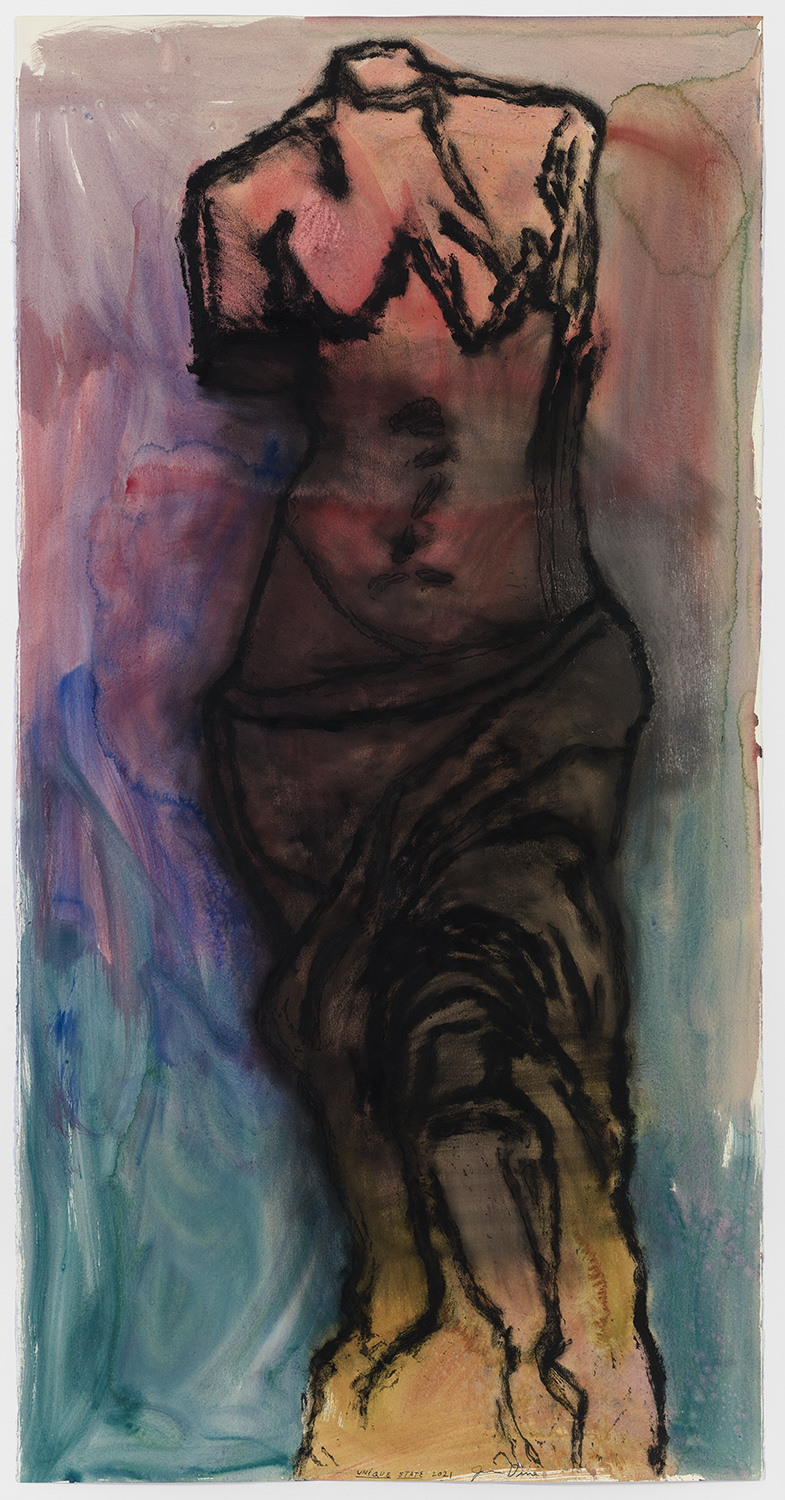
Venus by my hand (and watercolor) #2, 2021
Woodcut with extensive hand-coloring on Hahnemule Paper 350 gsm
Paper and image: 96-1/2″ x 49-1/4″ (245 x 125 cm
Unique state
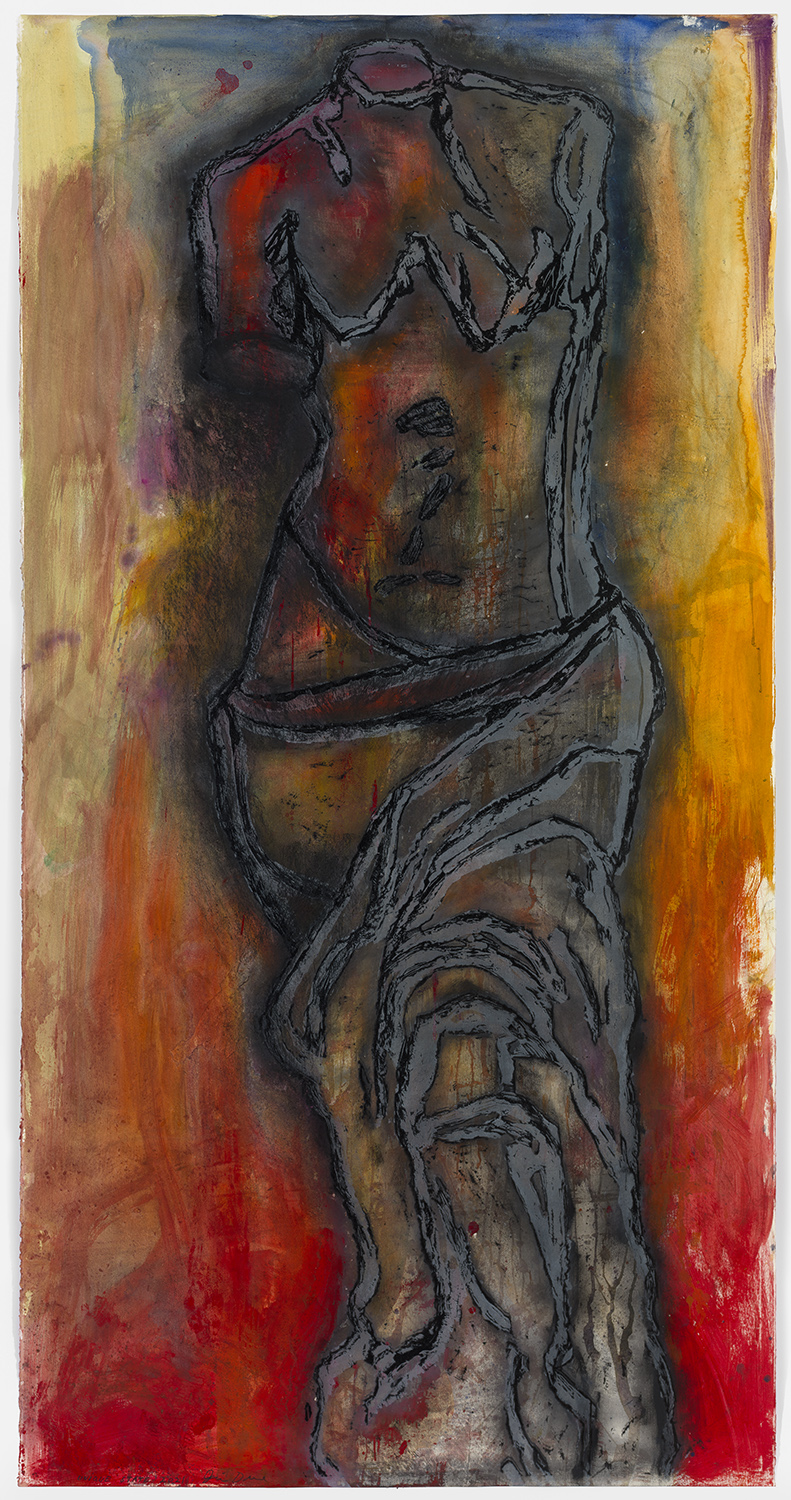
Venus by my hand (and watercolor) #3, 2021
Woodcut with extensive hand-coloring on Hahnemule Paper 350 gsm
Paper and image: 96-1/2″ x 49-1/4″ (245 x 125 cm
Unique state
A MONUMENTAL PRINT
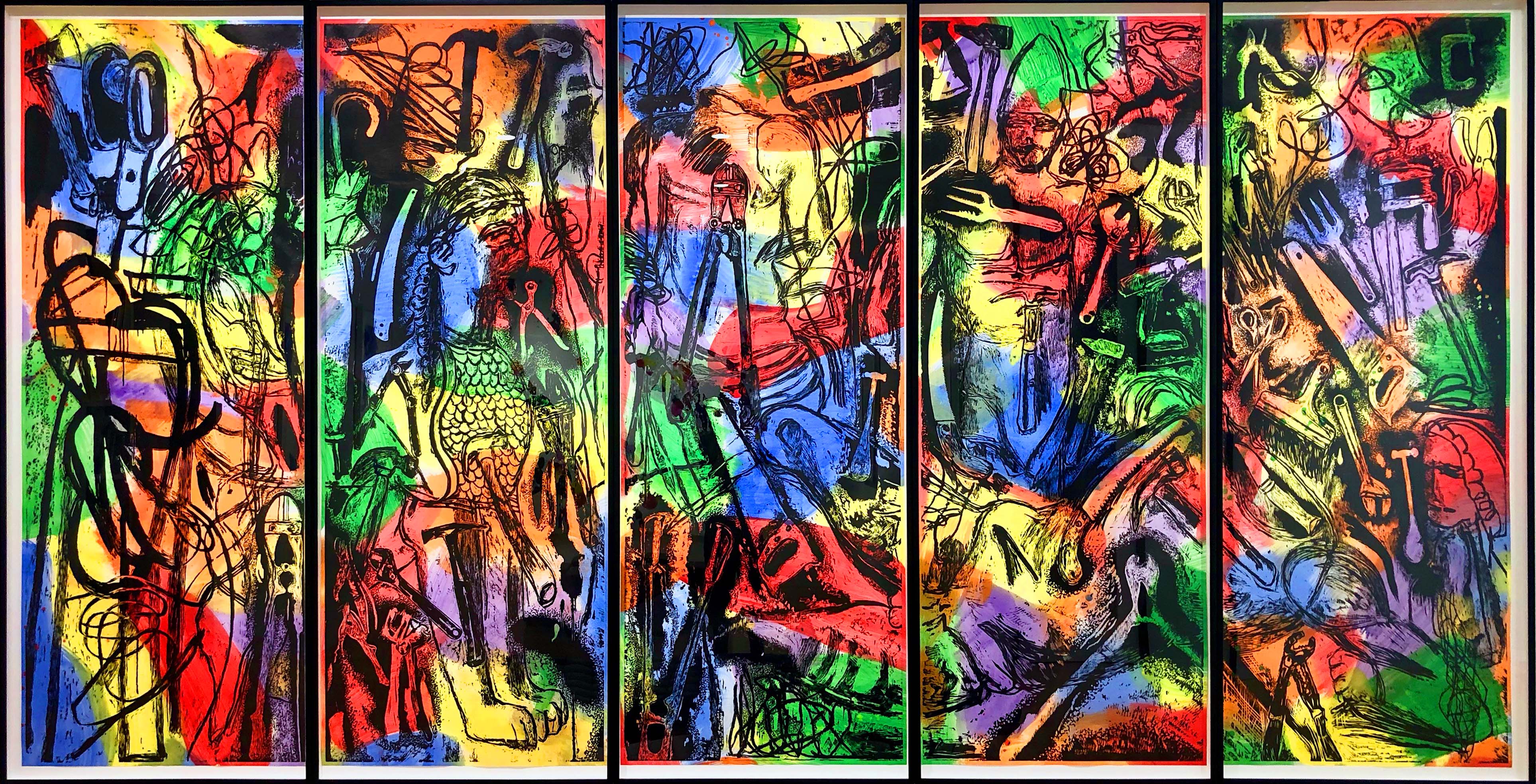
Jim Dine Asleep with his Tools, Jim Dreams 2018 Woodcut in black with extensive hand painting on five sheets of paper
Overall: 72-3/4″ x 139-3/4″ (185 x 355 cm) Each sheet: 72-3/4″ x 28″ (185 x 71 cm) Edition of 7 (+ 2 AP)
The recent five-part, one color woodcut, Asleep with his Tools, Jim Dreams (2018), is one of Dine’s great achievements. First, the artist painted each sheet in semi-transparent oil-based colors, evoking comparison with the leaded forms seen in a stained glass window. Then, working with a variety of woodcutting tools while incorporating their images into the composition, he uses the woodcutting process to “praise” these instruments of labor.
In this fantastical print, the viewer sees again how ambitious Dine remains as an artist. Each of the five sheets of paper is a shade over six feet tall and a little more than two feet wide. Each sheet is packed with distinct linear elements depicting tools and figures, a dreamscape where anything can be found next to anything else. By hand-painting each set of woodcuts, he makes each of them unique.
Dine is an essential and essentially American artist. Through his paintings, sculptures, collages, drawings, and prints, he praises basic hand-held tools and honest labor, while using his own hands to lay bare his deepest feelings. ~ John Yau
